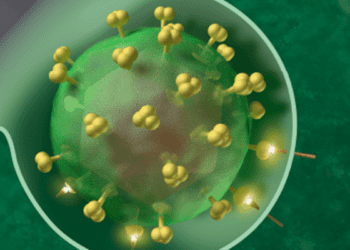Early, limited formula associated with prolonged breastfeeding
Image: PD
By Cordelia Y. Ross and Leah H. Carr
Dr. William Raszka, M.D.
1. Mothers who exclusively breast fed infants at risk for breastfeeding problems (control) were more likely to use formula at one week than mothers who supplemented initial breastfeeding attempts with small volumes of formula (early limited formula or ELF).
2. Supplementation with ELF was more likely to lead to exclusive breastfeeding at 3 months, as compared to control.
Evidence Rating Level: 1 (Excellent)
Study Rundown: The health benefits of breastfeeding are manifold and include decreasing the risk of infectious and allergic diseases in childhood. These benefits are the basis of the American Academy of Pediatrics’ recommendations to breastfeed exclusively for the first 6 months and continue breastfeeding for at least 1 year. Public health efforts to improve breastfeeding duration currently focus on reducing the use of formula during the birth hospitalization. However, data from this study suggests that early, limited formula (ELF) supplementation in infants at risk for breastfeeding problems may be a more promising approach. Supplementing with 10 cc of formula after each breastfeeding attempt until mature milk production was associated with decreased formula use at 1 week and exclusive breastfeeding at 3 months, as compared to control.
Limitations of this study are its small sample size and inclusion of individuals without strong feeding preferences Despite these limitations, results from this study support the use of ELF supplementation in infants to promote exclusive and prolonged breastfeeding .
Click to read the study, published today in Pediatrics
Relevant Reading: Breastfeeding and the use of human milk [Pediatrics].
Study Author, Valerie J. Flaherman, MD, MPH, talks to 2 Minute Medicine: Department of Pediatrics, University of California, San Francisco.
“This randomized trial found that the temporary use of 10 cc of formula after each breastfeeding prior to the onset of mature milk production improved breastfeeding outcomes for healthy term newborns 24-48 hours old who had lost ≥5% of birth weight. Babies who received early limited formula (ELF) were less likely to receive formula at 7 days of age (10% v. 47%, p<0.01) and at 3 months of age (21% v. 58%, p<0.02). These findings suggest that for some newborns, pediatricians may want to recommend ELF to help mothersbreastfeed longer.
Findings are limited by the small sample size of 40, which did not allow for subgroup analysis. In addition, since participants were open to either exclusive breastfeeding or to supplementation and were enrolled in a geographic area of high breastfeeding prevalence and duration, the results are not necessarily generalizable to a larger population.”
In-Depth [randomized controlled trial]: A total of 40 mother-infant pairs were studied. Newborns included had ≥5% early weight loss in the first 36 hours of life. Participants were randomly assigned to one of two groups: 20 infants received 10 mL of formula after each breastfeeding (intervention, ELF) until mature milk production began while the other 20 infants continued exclusive breastfeeding (control). At the 1-week assessment, ELF infants were significantly less likely than controls to have received formula in the previous 24 hours (10% v. 47%; 95% CI: 3.4-71.0%; p = .01). At the 3-month assessment, ELF infants were significantly more likely than controls to be breastfeeding exclusively (79% v. 42%; p = .02). Furthermore, those infants fed formula at the 1-week assessment were less likely to be exclusively breastfed at 3 months (18% v. 81%; p < .001).
© 2013 2minutemedicine.com. All rights reserved. No works may be reproduced without written consent from 2minutemedicine.com. Disclaimer: We present factual information directly from peer reviewed medical journals. No post should be construed as medical advice and is not intended as such by the authors or by 2minutemedicine.com. PLEASE SEE A HEALTHCARE PROVIDER IN YOUR AREA IF YOU SEEK MEDICAL ADVICE OF ANY SORT. Content is produced in accordance with fair use copyrights solely and strictly for the purpose of teaching, news and criticism. No benefit, monetary or otherwise, is realized by any participants or the owner of this domain.








